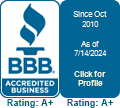Using natural remedies with children
Which infection remedies are safe for kids? How should you use these remedies for Staph and MRSA infections in children? The 8 tips below will help you get started using natural medicinal products with your child.

Children are much more sensitive than adults when it comes to using natural remedies.
There are many herbal products with limited or no safety studies for use with children. And some natural products are best avoided for babies and small children due to known risks. Other products may be too strong for children, especially in regards to using them on their sensitive skin and they must be diluted from full strength.
8 Tips for children’s and baby’s remedies
Below are general guidelines and tips for using supplements and natural products with children. Keep in mind that the product label should take precedence over any of the guidelines below. And always consult with a natural-minded physician before using natural remedies or supplements with children.
- Look carefully on the label or product instructions for the proper dose for children. Also make sure the label has no special warnings for children. Doses for babies and children are usually much lower than standard adult doses.
- Some products spell out a body weight adjustment for children. For example, if a product says to use 1 drop for every 10 pounds of body weight, then a 50 pound child would take 5 drops. Another common reduction is to use only half or quarter of a capsule or pill.
- Small children are unable to swallow pills. If the supplement can be taken with food, you can often break pills up or empty a capsule, hiding the contents in food or a drink. For older children, a smoothie is an excellent place to hide many supplements.
- Only mild essential oils should be used on babies and small children. Tea tree oil is a good example of a mild oil with good infection-fighting properties for skin infections. And, applying oils to the bottom of their feet is a safer alternative to using oils internally. And eucalyptus oil, though fairly mild, should never be put near the eyes, nose or face of infants or babies.
- Raw Manuka honey (like other honeys) should not be eaten by babies less than one year old due to risk of botulism. Honey can contain botulism bacteria and once eaten cause serious food poisoning. Babies under one year of age lack the intestinal flora (good bacteria) to prevent botulism sickness. While raw Manuka honey is an excellent remedy for adults and children, sterilized honey is a better option for babies.
- Babies and small children have sensitive skin, stomachs, intestinal flora and mucous membranes. Products that are especially strong, spicy or “hot” are best to avoid. Some examples often used with Staph and MRSA are raw garlic and essential oils of oregano, thyme, or cinnamon oil. These should be avoided with young children.
- Medicinal essential oils, even mild ones, should be diluted before use on children’s skin. As a general rule, for children less than two years old, dilute essential oils 75% (1 drop of oil plus 3 drops carrier oil). For children 2 to 3 years old, a 50% dilution of essential oils is commonly used. For children over 4 years old, undiluted essential may be used if well tolerated.
- For skin decolonization with small children, use spot bathing rather than a bath. Spot bathing with a basin and wet cloth makes it easier to keep essential oils or other remedies in the water away from the face, groin and other sensitive ares of baby’s skin.

- Blog archives: Latest news on children with MRSA
- Using Tea Tree essential oil for MRSA and Staph
- Natural remedies overview for treatment of Staph and MRSA





